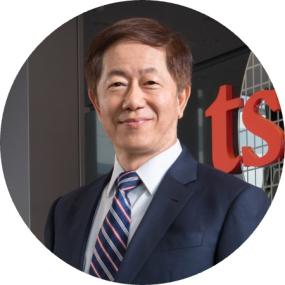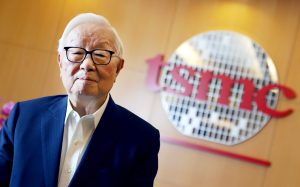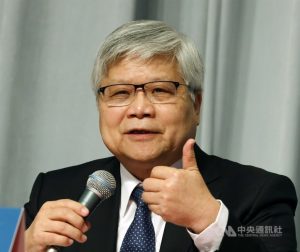Taiwan Semiconductor Manufacturing Co. (TSMC), is scheduled to open a global research and development center in Hsinchu, northern Taiwan, next week as part of its efforts to cement the lead over its peers in technology development.
In a media advisory, TSMC said it will hold an inauguration ceremony for the global R&D center in the Hsinchu Science Park, where the chipmaker and many Taiwanese tech giants have headquarters, on July 28.

While the advisory provided few details, Mark Liu, Chairman, TSMC said in a ceremony at the end of last year for the launch of mass production of its advanced 3 nanometer process that the opening of a global R&D center in Taiwan showed the chipmaker’s determination to continue to raise its investments in the country.
Liu said the upcoming R&D center is expected to house about 8,000 R&D staffers.
He has also unveiled TSMC’s ambitions to build the R&D center into a Taiwan-version of the “Bell Labs,” where the chipmaker will carry out its development projects over the next two to three decades, as the semiconductor industry was full of competition, and it was necessary for the company to work hard to stay ahead.

Local news media said Morris Chang, founder of TSMC, has been invited to attend the July 28 ceremony as the inauguration of the R&D center will be used to celebrate his birthday on July 10. Chang, who was born in 1931, turned 92 this month.
It will be the first time for Chang, who has been dubbed the father of the semiconductor industry in Taiwan, to return to TSMC to attend a major event after he retired from the company’s chairmanship in 2018.

In an investor conference held on Thursday, C.C. Wei, CEO, TSMC said he expects the development of the 3nm process to accelerate in the second half of this year.
The enhanced N3E version is expected to begin mass production in the fourth quarter of this year, and the more sophisticated 2nm process is scheduled to start commercial production in 2025 as scheduled, Wei added.
TSMC is planning to unveil an upgraded 2nm version to produce high-performance computing (HPC) gadgets in the second half of 2025, with mass production set for 2026, Wei said.
While TSMC disclosed its plans technology development in the investor conference, the company has lowered its sales guidance for 2023 as a result of inventory adjustments in the current weak global economy.
Wei said the company is forecasting that sales will fall by 10 percent from a year earlier in U.S. dollar terms, a downgrade from an earlier forecast of a 4-6 percent decline made in April.
It is the second time TSMC has cut its sales forecast this year. In January, the chipmaker predicted “a slight increase” in sales in U.S. dollar terms for 2023.
The downgrade in its 2023 sales guidance prompted massive selling in TSMC shares, the most heavily weighted stock in the local market, on Friday, pushing down the stock by 3.28 percent to close at NT$560.00 (US$17.95) after foreign institutional investors registered a net sell of about 23.12 million shares, the highest amount for the stock in more than nine months.
TSMC’s losses contributed about 160 points to the decline of the Taiex, the weighted index on the Taiwan Stock Exchange, which fell 0.78 percent to end at 17,030.70 as continued buying in AI server makers offset the downturn suffered by the chipmaker.
Despite the large net sell by foreign institutional investors, several foreign brokerages still left a “buy” rating on TSMC shares unchanged on high hopes about AI development, saying the chipmaker will see a significant rebound in sales in 2024.
According to Wei, TSMC is upbeat about demand for AI chips and expects the compound annual growth rate to hit 50 percent over the next five years, with AI processors expected to account for 11-13 percent of the company’s total sales during the five-year period.
If you have an interesting Article / Report/case study to share, please get in touch with us at editors@roymediative.com/ roy@roymediative.com, 9811346846/9625243429.






